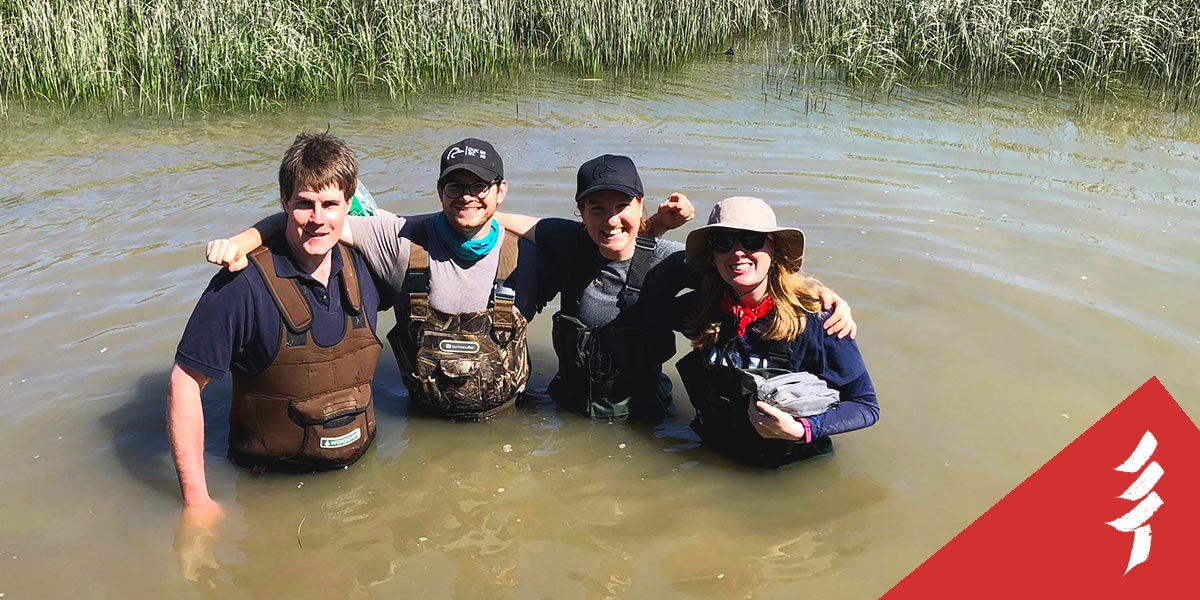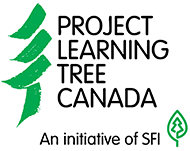News
GREEN JOB SPOTLIGHT: BEN SIEBERT, CONSERVATION TECHNICIANJune 19, 2019 From L to R: Ben Siebert with colleagues Ben Kavanagh, Braya Quilty and Marisa Bischoff “Working six to eight hours identifying invasive species on a mudflat may seem like hard work, but it’s going to help improve this ecosystem and help migratory birds,” says Ben Siebert, a Conservation Technician at Ducks Unlimited Canada (DUC). Ben is working in Boundary Bay, which is part of the larger Fraser River estuary south of Vancouver. More than 1.5 million birds from three continents and 20 countries migrate through the area, making the mudflats one of the largest wintering spots for shorebirds and waterfowl in Canada. As many as 120,000 ducks can be found in and around Boundary Bay from late summer to early spring. The area also provides critical habitat for large numbers of marine mammals and raptors. The important work of conserving and improving ecosystems is what drives him to work all day under a hot sun. “The conditions can be tough sometimes, but the impact of our work is huge. That’s the real reward that Green Jobs can offer,” Ben adds.
He also loves the fact that his work takes him to some beautiful places most people never get to see. “Being outdoors is key for me. I grew up in the city and wasn’t really allowed to wander far on my own as a child, but every summer my family would go camping, and I really enjoyed that,” Ben says. “That’s why my Green Job is so great. I get to be outside almost every day, which is much better than working all day in an office.” Ben and his Green Jobs coworkers face a big challenge. Spartina, a salt-tolerant cordgrass, is invasive to the Pacific Northwest. This fast-growing plant can significantly decrease habitat for waterfowl, shorebirds, fish, and shellfish. It can also upset the delicate ecology of intertidal habitats. Spartina pushes out native plant species, including rare and endangered plants, reducing biodiversity and impairing how the marshland functions. While Ben’s commitment to the environment is clear, watching him work on the mudflats might mislead you into thinking he is spending too much time on his phone. But Ben isn’t texting friends or catching up on social media. Instead, he’s playing a key role in efforts to remove invasive Spartina plants from this landscape. In 2017, DUC launched a new smartphone app that allows conservation staff to document and report the size and location of Spartina plants. Using technology and being able to identify plant species are just some of the important skills needed to do a job like this. “This new app is allowing us to track the population dynamics of Spartina more effectively,” says Matt Christensen, a Conservation Specialist at DUC. Matt and Megan Winand, another DUC Conservation Specialist, are mentoring Ben about the best ways to achieve conservation objectives through DUC’s work. This fall, Ben is returning to the British Columbia Institute of Technology to complete the second year of his B.Sc. in ecological restoration. He hopes to land another Green Job with DUC next summer to keep him on a career path to landing his dream job: “I want to have a job in conservation that will allow me to travel, make a difference, and see a wide variety of ecosystems all over the country.” PLT Canada’s parent organization, the Sustainable Forestry Initiative (SFI), has a long-standing collaborative partnership with DUC, including SFI Conservation Grants and related projects that have informed the development of certification standards. DUC recently participated in a successful SFI-funded project to develop a protocol to measure carbon stores in boreal wetlands. PLT Canada’s Green Jobs initiative is funded in part by the Government of Canada’s Youth Employment Strategy. |


